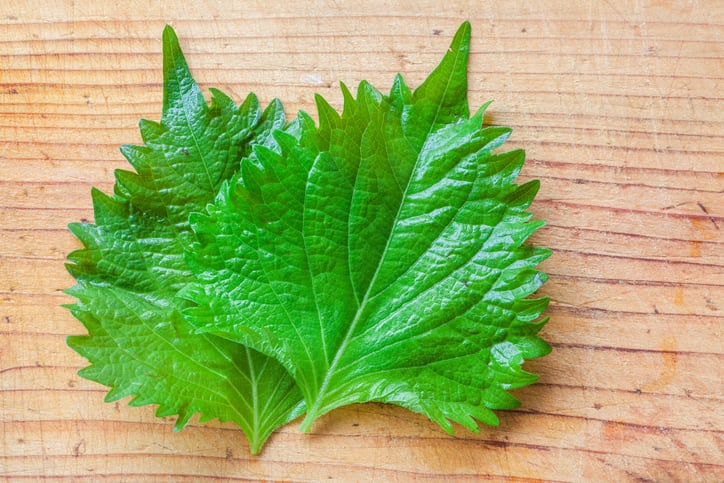An aromatic herb, perilla is studied and used in anti-ageing cosmetics for its antioxidant properties, however to date studies on its elasticity and pigmentation properties have been limited.
Hence, researchers from Thailand assessed the bioactivity levels of Perilla frutescens pomace extract as well as conducted a clinical evaluation of its effect on human skin.
The results were published in the journal Cosmetics.
Study design
In the clinical evaluation, researchers recruited 30 healthy male and female subjects (aged 35 to 55).
Subjects were grouped into either the control (cream base) or the treatment group (cream containing P. frutescens seed extract). They were tasked to apply 0.2g of the test product on their face twice daily (morning and evening) for four weeks.
Skin elasticity was measured as a percentage of skin retraction after the stretching. Retraction time is defined as the duration required for the skin to return to the original position after suction.
To assess pigmentation, a skin colour probe was used and data was expressed as melanin content.
Data was collected at week zero (baseline), three and four.
For the in-vitro tests, researchers analysed the phenol, flavonoid, melanin contents as well as antioxidant and collagenase properties of the P. frutescens seed extract.
Promising ingredient
The results showed that the application of P. frutescens seed extract cream could improve skin elasticity, by significantly reducing retraction time at week four compared to baseline.
The melanin content of the skin with the application of P. frutescens seed extract cream at week four was also significantly reduced compared to baseline, while the control cream did not show any consistent differences during the period of study (p<0.05).
The clinical evaluation results thus indicate that P. frutescens seed extract cream could improve skin elasticity and reduce skin pigmentation.
In the in-vitro study, researchers treated cells with P. frutescens pomace extract and found that it could suppress melanogenesis without inducing cell death. Melanogenesis is the process where melanin pigment is produced.
Other bioactivity tests also showed that P. frutescens pomace extract had phenolic and flavonoid compounds that exhibited antioxidant activities. These could be a potential mechanism for P. frutescens pomace extract clinically improving skin elasticity and reduce hyperpigmentation without any skin irritations.
This study thus suggests that P. frutescens pomace extract could be considered as a promising ingredient in pharmaceuticals and cosmeceuticals intended for collagen maintenance, slowing down skin ageing and melanogenesis processes, and prevention of skin hyperpigmentation disorders.
Researchers recommend that further studies be conducted to confirm these findings.
The research was funded by the University of Phayao, Thailand.
Source: Cosmetics
https://doi.org/10.3390/cosmetics7030069
“Collagenase and Melanogenesis Inhibitory Effects of Perilla Frutescens Pomace Extract and Its Efficacy in Topical Cosmetic Formulations”
Authors: Lapatrada Mungmai, et al.




